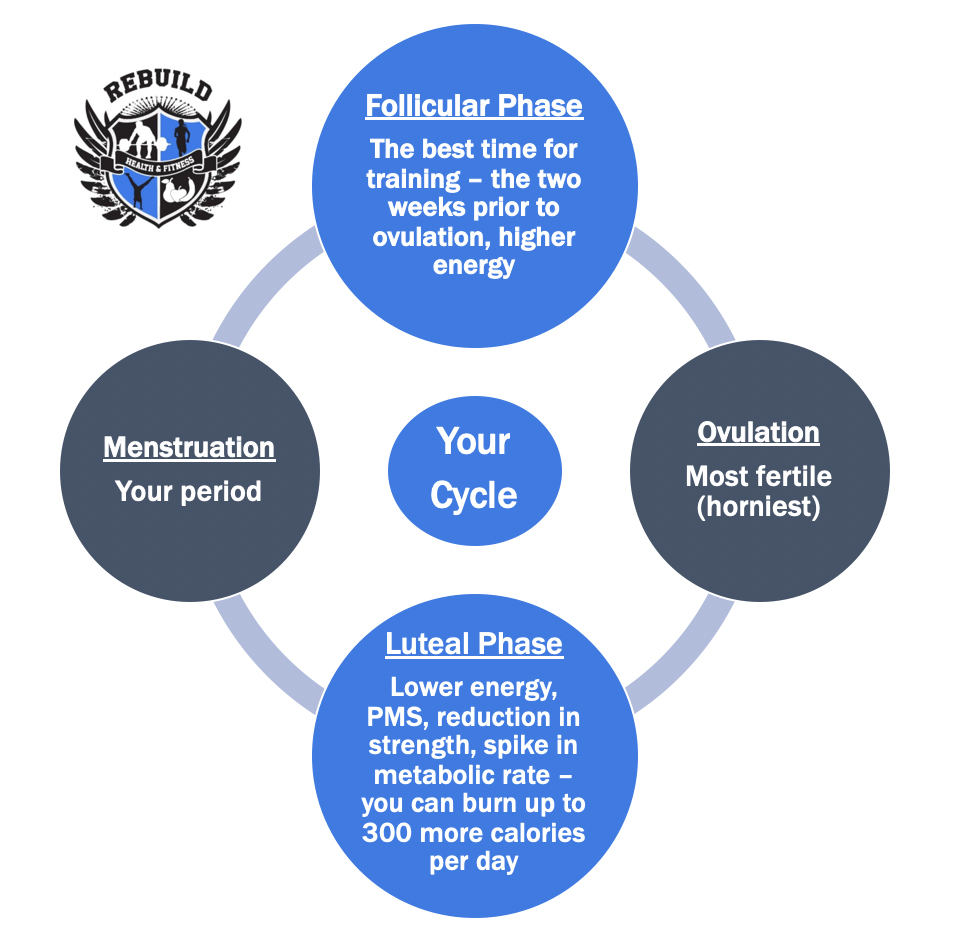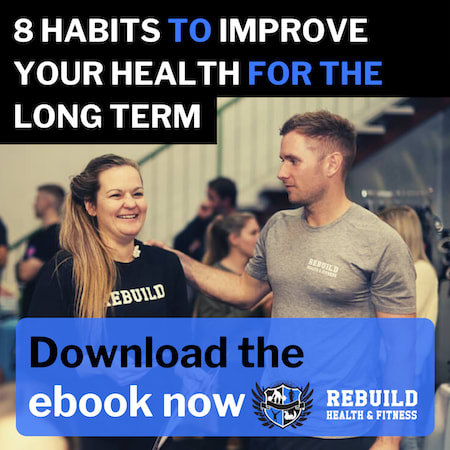
It’s not a widely discussed topic, but it’s one that roughly half of the population deals with – periods.
It affects your mood, your strength, your weight, your calorie output, among other things.
Women in the gym can struggle to get the most out of their sessions, some research has shown women see a 60% reduction in strength from one week to another due to cycles.
This week on the Rebuild Health & Fitness podcast, we speak to Sarah Boyer - a qualified coach and nutritionist, who focuses on training females and is a female herself, thus giving some good insight into the effects of periods and cycles on training and health.
It’s not a widely discussed topic, even within the industry, James says. “During uni for me, any sports team, nothing was ever mentioned about the female menstrual cycle.”
THE CYCLE
The menstrual cycle is broken up into different phases:
James says: “There are different phases of the cycle, there’s follicular, which we’ll call your more positive weeks."
This is the time between your first day of your period and your ovulation.
“Then you have your ovulation – when you’re most fertile, when you’re horniest, and then you have your luteal phase, which is post-ovulation, you have an increase in your metabolic rate, you have more insulin resistance at the same time and all the things in this phase are not spoken about.”
The luteal phase, the time from ovulation to menstruation – which is typically about 14 days – this is when premenstrual syndrome happens, this is when you'll find training a little more challenging and adhering to your nutrition can be more difficult.
Your menstruation happens between your luteal and follicular phases, that is your period, which is when the uterus lining sheds.

Sarah says the luteal phase is a time when women will burn more calories and is a time for self-compassion, it's when we see estrogen and progesterone rising and testosterone drops - which means that you may feel like you have less energy. “You get to that week three – where we understand that you see the progesterone levels getting higher and women can burn 100-300 calories more per day; no wonder we get hungry and want chocolate.
“We have this pressure that we should be eating the same way every day or that we should feel the same amount of energy every day. But we don’t get to. In that second phase of our cycle, we get hungrier and we can mentally feel worse too – and that’s a killer combination.”
Sean agrees, outlining with some of his clients that they opt for a two-week-on, two-week-off nutritional programme. He says: “Dieting with female clients – there are two weeks within the cycle where it’s not optimal to be on an aggressive diet, especially when you’re needing those extra calories each day. And some people get confused- it’s not over a week that you need 100-300 extra, it’s each day during that part of your cycle.”
Knowing where you are in your cycle can help you adhere to your training plans and accommodate your body’s requirements. Sarah says: “You don’t start a diet halfway through your cycle, when you’re about to become moody, about to start overthinking, about to start to become mildly irrational, you could feel more bloated and lethargic and you may need more food. You don’t start going into a (calorie) deficit then.”
While these phases are important to know, you can’t really stop them from happening but you can train and eat around them. Fitr Woman is one useful app the team recommends for tracking that can offer insight into how to train according to your cycle.
James says: “There’s nothing you can really do about this from a training aspect, but you must understand it. The more we understand it as male coaches, and as females – the less guilt I think people will have.”
Hear more about training and menstrual cycles on the Rebuild Health & Fitness podcast, available on Apple Podcasts, Spotify, Google Podcasts or wherever you stream your podcasts.

